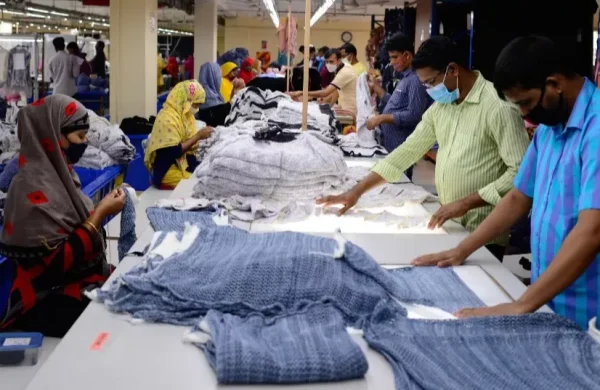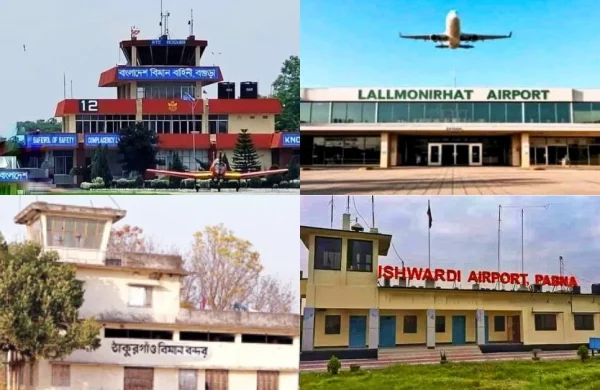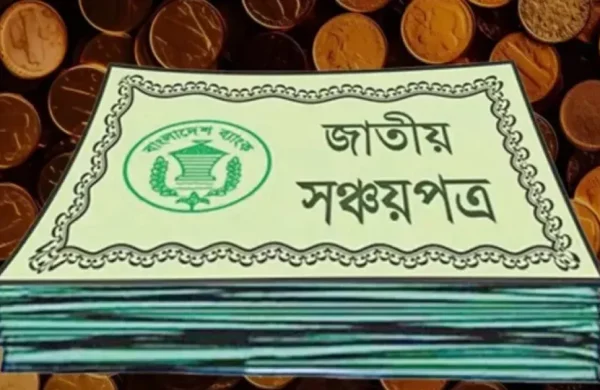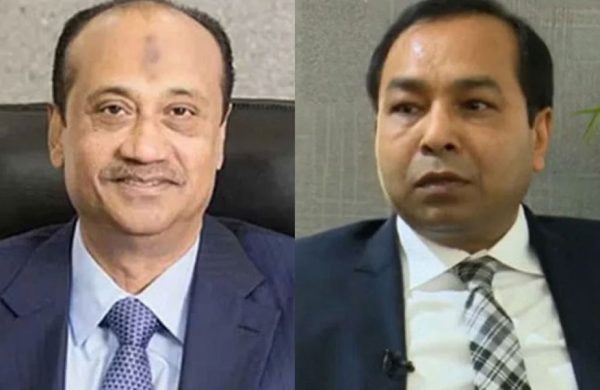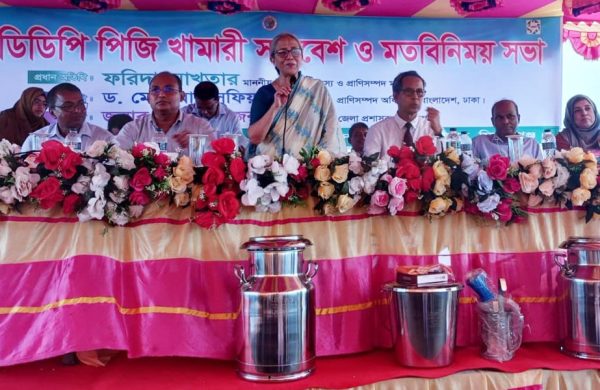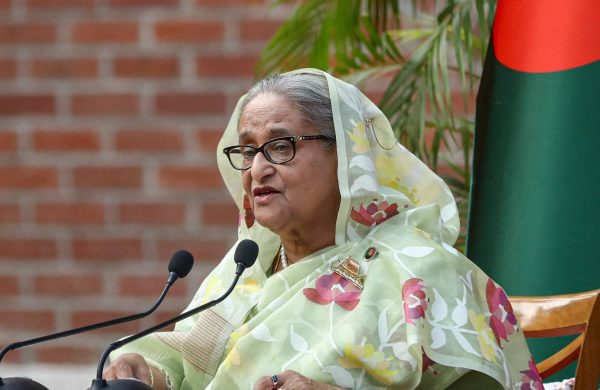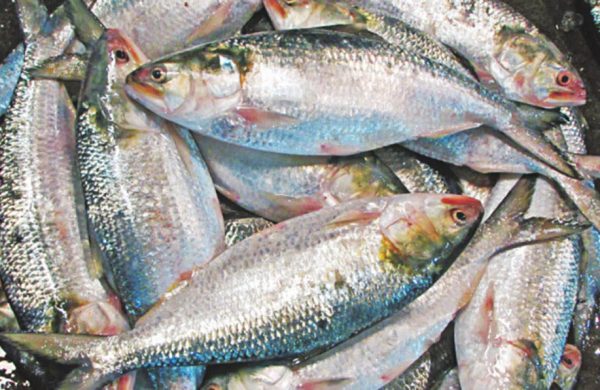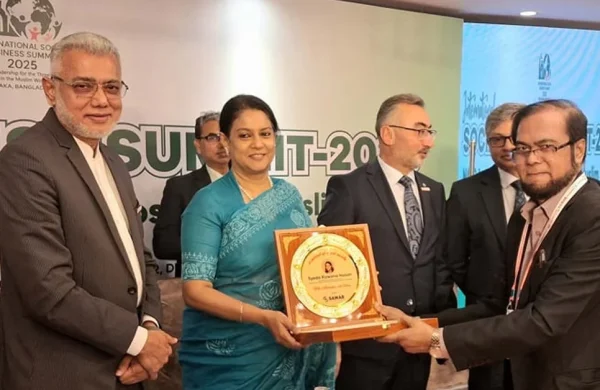4 reasons behind failure of VAT collection
- Update Time : Sunday, September 11, 2022
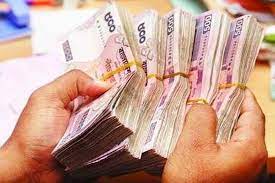
Swarnomoyee Mostafa Oishy
Experts identified four reasons behind the failure of VAT collection as per the target.
In the last few years, new targets have been set for the collection of Value Added Tax (VAT) as a major sector in the national budget. In the current financial year 2022-23, VAT, the main sector of revenue, has the highest target. As compared to other years, the four reasons including reduction of development project approvals, relaxation of large institutions in VAT collection, VAT exemption for various products including edible oil and lack of proper monitoring of field administration have led to disaster in VAT collection.
According to the review of the data of the National Board of Revenue, the target of revenue collection in the current financial year 2022-23 has been set at Tk 3,70,000 crore. VAT collection has been considered as the main sector for collection of this revenue. In the current financial year also, among the three sectors of NBR, the target of VAT collection has been set at Tk 1,36,900 crore by increasing about Tk 25,000 crore from the target of income tax and Tk 14,000 crore from the target of import-export.
Since the beginning of the current fiscal year, global commodity prices have increased and the dollar is ahead of the target. The pace of revenue collection has also increased in the income tax sector as compared to earlier. However, disaster has come in VAT collection.
In August, also the second month of the current fiscal year 2022-23, the target of VAT collection was Tk 8,214 crore. And temporarily, VAT of Tk 7,053 crore has been collected. Only in the month of August, the amount of deficit in VAT collection stood at Tk 1,160 crore. The average growth of NBR during the discussion period has been 6.59 percent.
In this case, the growth of import-export is 20.04 percent and the growth in the income tax sector is 2.79 percent. The condition of the main revenue generating sector is very poor there. During the mentioned period, the growth of VAT collection is negative that means minus 2.96 percent.
NBR VAT officials said that, a major part of VAT collection comes from government projects and other sectors. Due to austerity policies, dollar-dependent government projects are currently on hold. This has significantly reduced the tax at source level. Besides, VAT of various products have been exempted to keep the price of essential products within reach. VAT is exempted especially on edible oil and lastly fuel oil. This has an impact on overall VAT collection.
Chattogram VAT Commissionerate Commissioner Syed Musfiqur Rahman said, “One-third of the VAT collection comes from various projects and sectors of the government. This time, the project has reduced compared to other years and has an impact on VAT collection. Along with this, new VAT exemptions were given on several products including edible oil and rice. This has reduced overall VAT collection. But due to inflation and rising dollar value, we are getting the benefits that are supposed to be VAT. Therefore, this official also thinks that the VAT collection situation is still good.
According to Planning Commission sources, due to the dollar crisis, the government has followed the policy of cost containment. Already the projects have been divided into three parts. Projects that have dollar implications are identified as less important projects under the C-category. At present, the number of C-category projects is 81. Another 600 projects have been identified in the RB category. There are about 650 projects in this category as projects of most importance. Only projects of this category will be approved.
According to the Planning Commission, there are currently 10 projects awaiting approval at the National Economic Council Executive Committee (ECNEC) meeting. However, the officials of the Planning Commission also confirmed that emphasis is being given to old projects rather than new projects.
A review of the August data of VAT commissionerates across the country showed that none of the 12 commissionerates under the National Board of Revenue (NBR) could achieve the VAT collection target. Large Tax Paying Units (LTUs) collect the largest amount of VAT among the VAT Commissionerates. All major institutions of the country are registered under LTU. LTU’s target for VAT collection in August was Tk 3,963 crore. Of them, Tk 3,800 crore has been collected.
That is, the amount of deficit in LTU VAT collection is Tk 163 crore. The target of VAT Commissionerate Chattogram was Tk 837 crore. Of them, Tk 608 crore was collected. That means, the deficit in Chattogram VAT is Tk 229 crore. The target of Dhaka South VAT Commissionerate was Tk 825 crore. Of them, Tk 794 crore was collected. In other words, only in the month of August, the deficit in VAT collection is Tk 30 crore. Poor situation was noticed in Dhaka North VAT Commissionerate. At this time, the target of reply was Tk 1,015 crore. Of them, Tk 717 crore have been collected. That is, the deficit in North Commissionerate is Tk 297 crore. The target of Rajshahi VAT Commissionerate was Tk 154 crore, while Tk 57 crore has been collected. In this, the deficit amount is Tk 96 crore.
Jessore Commissionerate’s target was Tk 159 crore, while Tk 90 crore has been collected. A deficit of Tk 69 crore has been created here. In the month of August, the target of Khulna VAT Commissionerate was Tk 207 crore, while Tk 162 crore was collected and the deficit was Tk 44 crore.
The target of Sylhet VAT Commissionerate was Tk 98 crore. Of them, Tk 65 crore was collected and the deficit was Tk 32 crore.
The target of Dhaka East Commissionerate was Tk 307 crore, while Tk 273 crore was collected and Tk 33 crore was counted as deficit. The target of Dhaka West VAT Commissionerate was Tk 302 crore. Of them, collection was Tk 211 crore and deficit was Tk 91 crore.
VAT target in Comilla was Tk 238 crore. Of them, Tk 201 crore was collected, while shortfall was Tk 36 crore. Besides, the target of Rangpur VAT Commissionerate was Tk 103 crore, while VAT was collected at Tk 70 crore. That means, the deficit of VAT in Comilla also stands at Tk 33 crore.
According to NBR sources, tobacco companies are another major stakeholders of VAT at the source of government schemes. In the national budget of the current financial year, no such effective decision has been made that more revenue will be available from this sector. The rate of VAT has slightly increased in this sector from earlier. Allegedly, favoring one institution discriminated against others. This has affected the overall VAT collection. Apart from this, VAT has been gradually reduced in the price of daily commodities, especially in the import of edible oil. Along with this, VAT has been exempted from fuel oil and rice import. This has adversely affected the collection of VAT. Also there is lack of oversight of VAT Commissionerates.
There are also allegations that, the VAT administration is being run with relatively weak structures.
In that case, the slow pace of field level VAT collection is seen. Officials are consistently failing to collect VAT. Besides, the global economy has adversely affected the economy of Bangladesh. Prices of imported goods have become doubled to tripled overnight. At the same time, the prices of domestic products are also on the rise, which has an impact on businesses and people’s daily lives. The middle class is cutting the food list to meet the household expenses. This has affected the overall VAT collection.
Former Chief Economist of World Bank Zahid Hossain said, “If inflation increases, VAT collection will increase, this is a very normal provision. Besides, there is a good growth in import and export due to increase in dollar price. But, it does not affect VAT collection. On the contrary, VAT collection is decreasing. In this case, people may be reducing purchases, which has an impact on VAT collection. Apart from this, there is a weakness in the field process from setting up the EFD in VAT collection.”
This economist also believes that, there is no alternative to administrative reforms.




